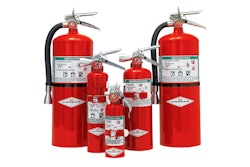MARKETPLACE sked
PRESS RELEASE
September 23, 2016
JERRY MORAN
SENATOR
SENATE
CHAIRMAN MORAN CONDUCTS HEARING ON FDA`S ROLE IN GENERIC
DRUG MARKETPLACE
CQ-Roll Call, Inc.
1255 22nd Street N.W.
Washington, D.C. 20037
Transcript/Programming: Tel. 301-731-1728
Sales: Tel. 202-419-8500 ext 599
www.cqrollcall.com
CQ-Roll Call, Inc.
is a private firm not affiliated with the U.S. Government.
Copyright 2016 by CQ-Roll Call, Inc.
Washington, D.C. U.S.A. All materials herein are protected by United States copyright law
and may not be reproduced, distributed, transmitted, displayed,
published or broadcast without the prior written permission of
CQ-Roll Call, Inc. You may not alter or remove any trademark,
copyright or other notice from copies of the content.
For Immediate Release
Chairman Moran Conducts Hearing on FDA`s Role in Generic Drug Marketplace
Contact: Katie Niederee Phone: 202-224-6521
Sept. 23, 2016
WASHINGTON - U.S. Senator Jerry Moran (R-Kan.), Chairman of the Senate Agriculture Appropriations Committee, presided over a hearing this week to examine the FDA`s Role in the generic drug marketplace. The hearing included testimony from U.S. Food and Drug Administration (FDA) Center for Drug Evaluation and Research Director Janet Woodcock.
``We have seen the impact that escalating costs of name-brand drugs has on Americans and their families,`` Sen. Moran said. ``While the FDA does not determine drug prices, it plays a critical role in getting life-saving drugs to the marketplace to create competition and lower prices.``
In 2012, Congress approved the Generic Drug User Fee Act to speed up efforts to bring generic drugs to the market. Over the past three years, the FDA has collected $1 billion from generic drug manufacturers, which has translated into hiring an additional 1,000 employees and replacing antiquated information technology systems. Despite the influx of resources, there are more than 4,000 generic drug applications currently awaiting approval, and the median time it takes for the FDA to approve a generic is now 47 months or nearly four years.
Sen. Moran (0:31): ``Epipen in particular. . .is a combination between a device and a drug. Are there unique circumstances that make the generic more difficult because of the combination?``
Dr. Woodcock (0:55): ``Yes, the firm that markets Epipen has patents on the device component that go through 2025. So any firm wishing to make a generic would have to be able to get around those patents somehow. . .or challenge them successfully to market a copy.``
Sen. Moran (1:18): ``I think your column. . .it talks about generics for the drug, but they`re not widely used?``
Dr. Woodcock (1:33): ``There is another brand of epinephrine auto injector. . .that FDA has approved. We`ve approved a number of them. . .one of those. . .there`s something people call an `authorized generic`. . .it`s very confusing because it`s not a generic. It is when a brand name company decides to market their product. . .they take the brand name off and make it look like a generic - and then they market that, usually at a lower price. And so there are some people who have the brand loyalty who stay with the brand, but then they can also compete in the generic market with this version. It`s the same product - they make it in the same plants usually and everything - it just has a different label on it.``
Sen. Moran (4:49): ``The way, doctor, that I understood your testimony is that what I describe as a backlog really is applications that are pending that have been reviewed to some extent, but not yet approved. . .sent back to the drug manufacturer for further actions on their part. Is that correct?``
Dr. Woodcock (5:05): ``That`s correct. There`s about 1,700 with the manufacturers.``
Sen. Moran (5:09): ``And are those problems with the application, are they process. . .or are they substantive issues. . .?``
Dr. Woodcock (5:25): ``We have tried to make these all substantive. Part of the changes we made for GADUFA was that we`re calling people all the time while reviewing their application. We call that information requests, so that these minor issues do not delay a decision on an application.``
Sen. Moran (8:55): ``It`s not a generic, but at least reports are that you found a way to accelerate the process. Is that an accurate analysis. . .of what occurred?``
Dr. Woodcock (9:05): ``The description of what occurred is the product was approved under something called accelerated approval. . .it means you don`t have clinical trials that prove the benefit to the patient - you approve on a surrogate endpoint that we feel is reasonably likely to predict clinical benefit. That`s how we approve a lot of HIV drugs over the years and cancer drugs. . .Then the company has to prove with later studies that the product really does have the predicted benefit.``
Sen. Moran (9:48): ``Is there anything to learn from that process that would apply to generics?``
Dr. Woodcock (9:53): ``I don`t think so because that has to do with showing effectiveness. And generics get their effectiveness by showing they`re the same as the referenced drug.``






















